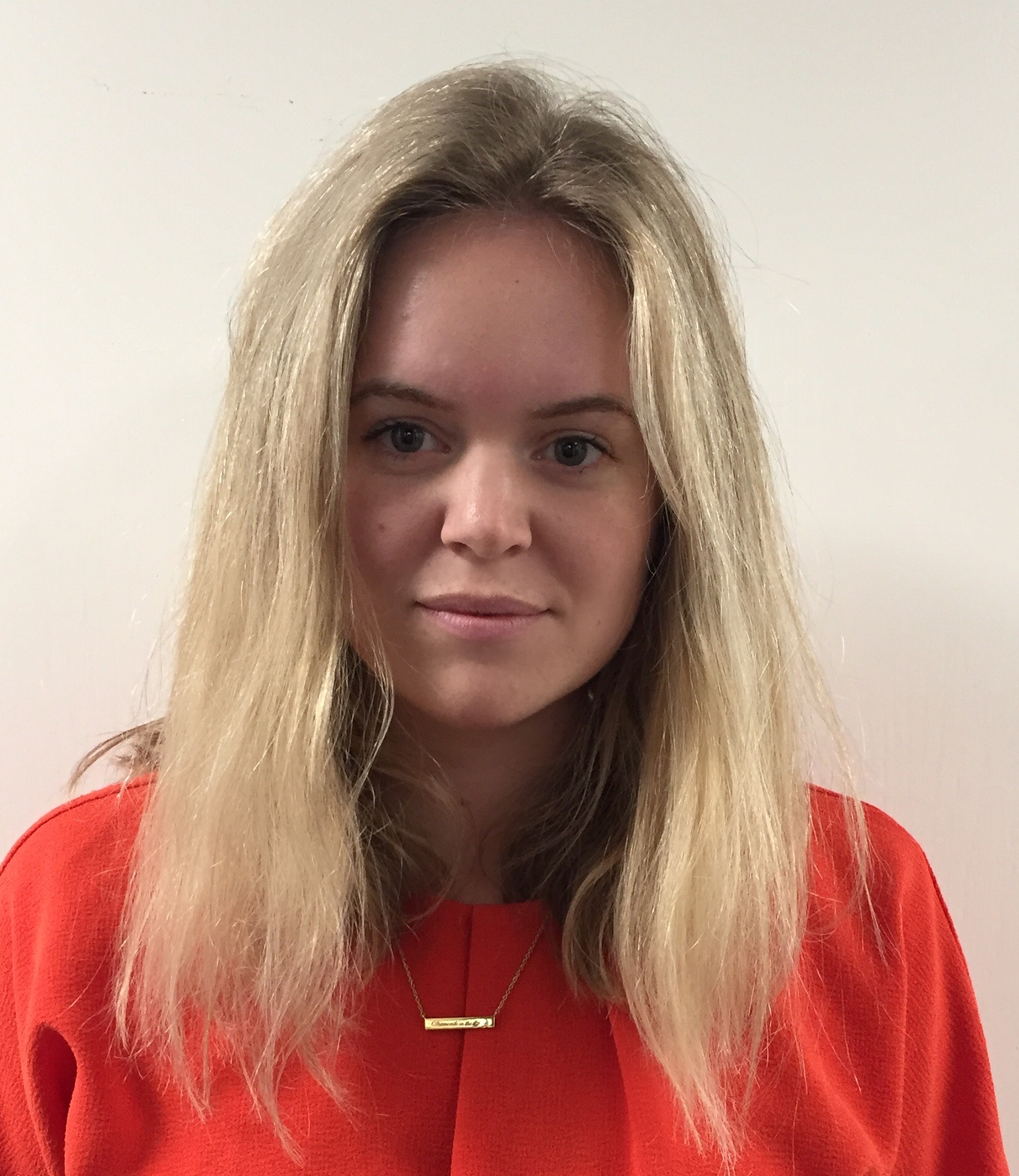Claire Foy on playing The Queen: 'Being likeable all the time isn't real life'
Claire Foy has spent years quietly cementing her reputation as a respected British actress, but her latest role is about to send her stellar. Lucy Pavia meets the new monarch of Netflix
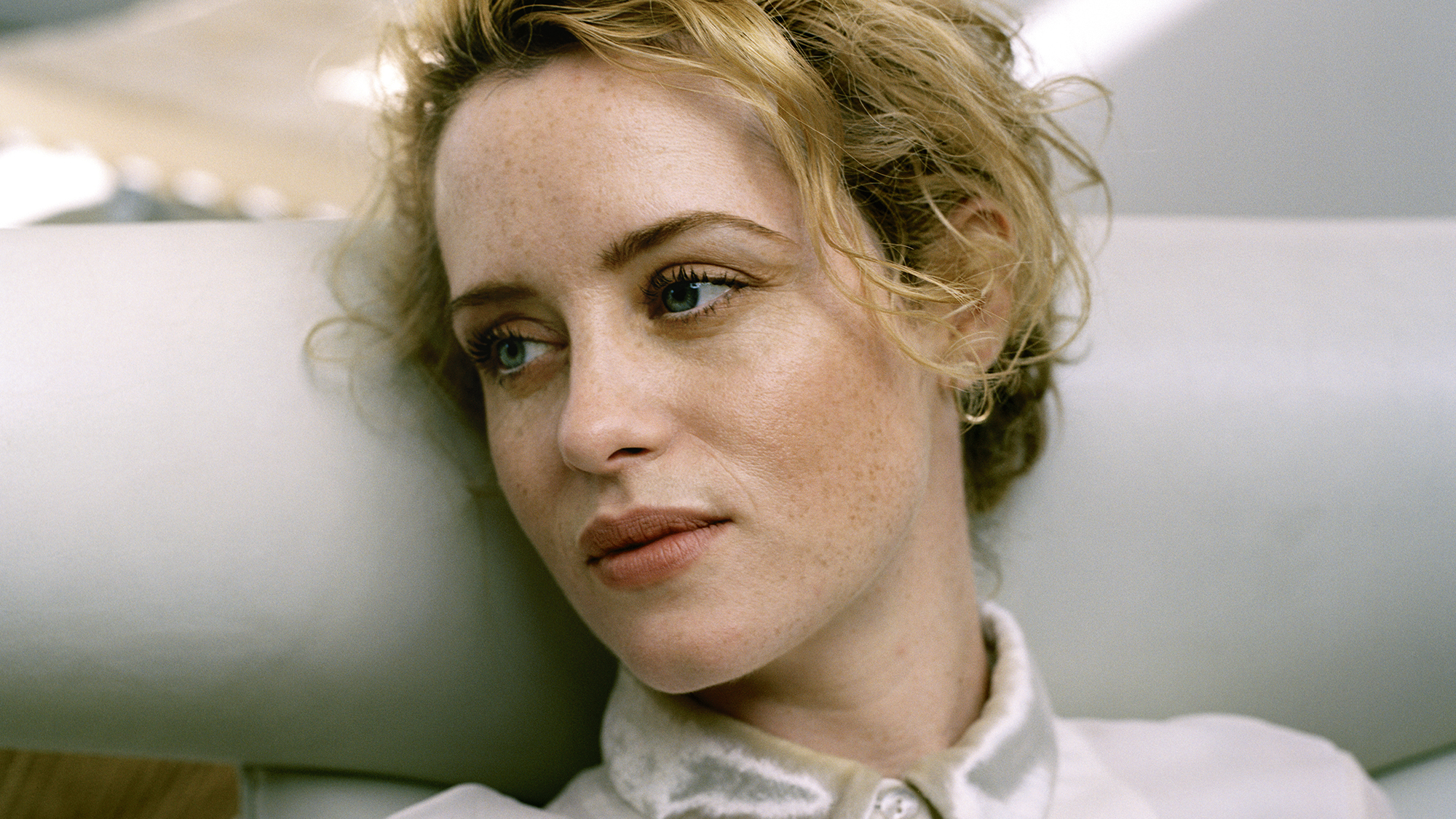
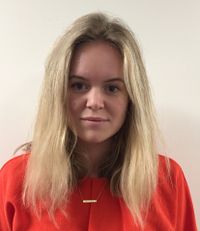
Claire Foy has spent years quietly cementing her reputation as a respected British actress, but her latest role is about to send her stellar. Lucy Pavia meets the new monarch of Netflix
Claire Foy was five months pregnant when she auditioned to play the Queen. She was asked to balance a large crown on her head and wear a white 40s dress, which didn’t fit her bump. She thought she looked so ridiculous she didn’t have a hope of winning the part.
But watching her play Elizabeth II in Netflix’s sumptuous new £100m production The Crown – about the Queen’s first decade on the throne – makes you wonder whether any other actress could have possibly been a better fit for HRH. Physically she passes with flying colours as a young Liz, but more importantly she’s captured her elusive combination of delicacy and steeliness. And with Matt Smith playing a more sensitive (read: non-cartoonish) Prince Philip, it makes for pretty addictive viewing.
When we meet for the shoot in a spacious London flat, Foy’s hair has been lightened to honey blonde (‘for a film,’ she explains, ‘I can now conclusively tell you blondes do have more fun,’) and she changes from Jil Sander and Osman separates into a short silk tea dress once the photographs have been taken, hugging each member of the production crew as they leave.
Foy, 32, is one of those actors who has taken a slow-and-steady approach to a career path notorious for having a short lifespan. Starting with the BBC’s period piece Little Dorrit (2008) and turning her hand to both film (Wreckers) and theatre (Macbeth) along the way, Foy’s star really began to ascend last year when she played Anne Boleyn in the BBC adaptation of Hilary Mantel’s Wolf Hall, transforming a historical figure so often portrayed as little more than a power-grabbing harpy into something deeper and far more interesting. One British queen down, she’s now taking on the longest reigning monarch of the lot. No pressure...
Biopics are notoriously hard to pull off, but doing a biopic of someone who is both alive and hugely famous must be even tougher?
‘It’s really tricky, [but] you just have to take it as any other normal piece [and] not be scared of making a bold choice or making people unattractive. Being really likeable all the time is just not real life, so it’s your duty to make a well-rounded character. But I’ve never really thought of it as a biopic, I suppose, because it’s not just about her, it’s about “the firm”, it’s about the crown, it’s about politics and everything that’s happening in society at the time.’
Celebrity news, beauty, fashion advice, and fascinating features, delivered straight to your inbox!
The show isn’t shy in tackling marital tensions between the Queen and Prince Phillip.
‘He’s a strong man, and [when they married] they set their life up in a very conventional 50s way. She wanted to be his wife, to follow him around and support him in his career and that’s what they thought they were going to do for 20, 30 years. But a few years later [when King George VI died] finding out that’s not what’s happening, to be told, “You can’t live where you want to live, you can’t have your own name, you can’t do what you want to do any more, you have to do this.” It’s completely suffocating.’
It’s very interesting to see a more in-depth interpretation of Prince Philip…
‘Philip’s story is the most interesting in the royal family – his background is the opposite of what you’d think. Everyone has this idea that Philip is this bumbling, deliberately posh sort of man who says the wrong thing. I think actually he has no respect for people respecting him; in a way, he just thinks it’s all nonsense – why should he be living in a palace and other people not? It’s heartbreaking where [the story] goes, because you’re watching these two people have a relationship in public, but also the decisions they make [that] affect their marriage.’
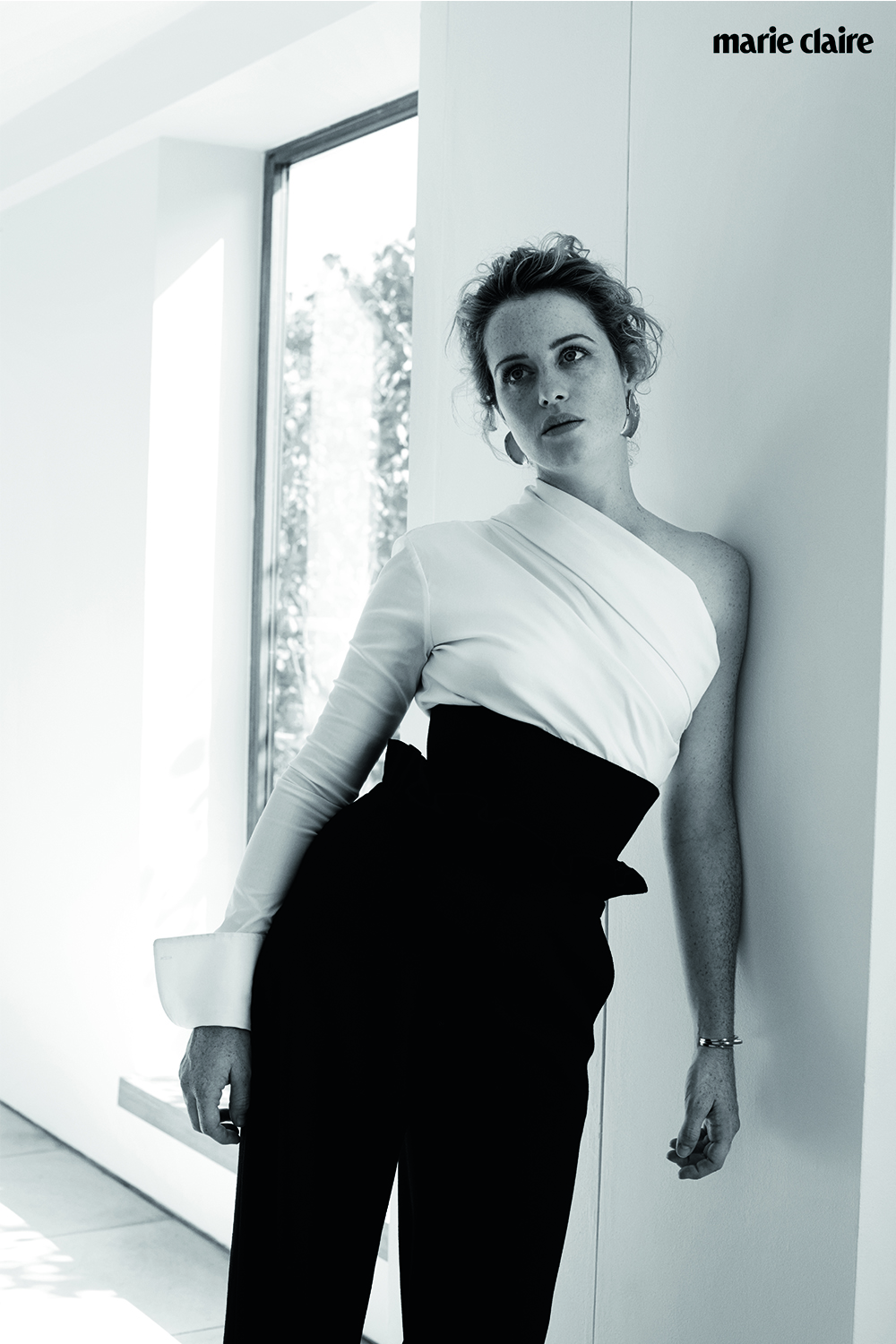
Do you think it’s easier or harder for royals now – like William and Kate – than it was back then?
‘It was easier in a sense that the rules were clearly defined. You knew where you stood. The press was respectful and likewise you gave them a certain amount of room. But the lines are so blurred now that you don’t know when you’re on and when you’re off. I also think it must be tricky to be a celebrity… I mean, when Elizabeth was a princess she was a celebrity – what she was wearing and whether or not she would marry Philip were all over the newspapers – but it wasn’t exactly her day-to-day life being splashed everywhere.’
Whereas now royals are treated like A-list celebrities from birth?
‘It’s their job, but they don’t ever have the chance to choose. It’s easy to say, well, they’ve got all this privilege, but I think freedom is a real gift. Regardless of how much money you possess, having the freedom to choose what you want to do in your life – they’ve never had that option.’
Did you have any reservations about the role?
‘Oh god, yeah. I’d never had a baby before and I didn’t know what state I was going to be in physically [filming started when Foy’s daughter was four months old] or mentally. You know, I might have given birth and been like, “I’m never working again,” or I might have been clawing my way out of the house. But then I thought, everything happens for a reason. And they were so supportive. They said, “We’d love you to do it so take care of yourself and we’ll see you after your baby’s born,” which gave me room to not go bonkers. You’re a different person after you’ve had a baby, so you can’t pre-empt that decision. I sort of had to in a way, though I’m so glad that I did.’
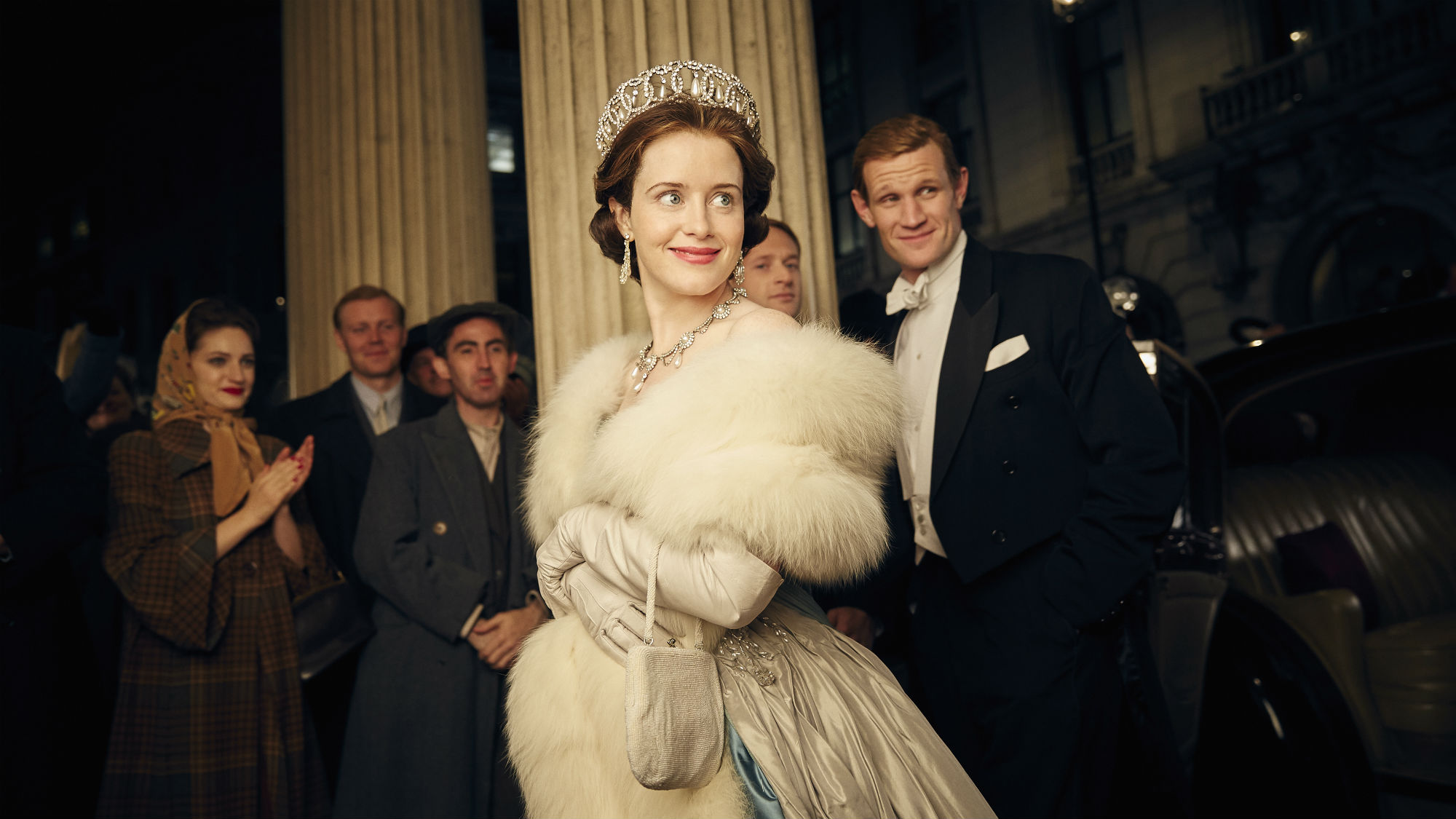
How did you find it?
‘It’s very odd to be in a capacity which is not being a mum. People are asking you things and you’re like, “What, sorry?” But I’m very lucky to do a job where I could bring my baby on set a lot of the time.’
You’ve said in the past that you have no big desire to move to Hollywood. Have you changed your mind?
‘There is an idea that that’s where you should want to be, and I’m a bit like, “Well, why?” I don’t think the pinnacle of your career is just getting bigger and bigger. There are lots of actors who do really good stuff and enjoy it, and are able to do it without having to sacrifice a huge part of their [lives]. The idea of moving to America would be exciting but I’m not like, “I will go out there at all costs.”’
Do you think the UK has a better offering in terms of great female roles?
‘Not particularly. I mean The Crown is a different kettle of fish because I’m playing a real person. I do think [on-demand] telly gives you the opportunity to explore different angles because it doesn’t have to appeal to all people, which I think is sometimes a problem with terrestrial TV. You feel like 13 million people have to love it, but I just don’t think that’s going to happen and I don’t know why you’d make something hoping that was the case. There’s definitely a better variety of roles for women on TV than in movies, though. It’s brilliant because you don’t have to fit into a particular [mould] – you’re not just “the girlfriend” or “the mother”, you can be more complicated.’
Your husband [The History Boys’ star Stephen Campbell Moore] is an actor. Do you avoid talking shop at home?
‘It would be weird to avoid that, because then you’d come home seething or really happy and go, “No, we can’t talk about it.” I was incredibly boring doing [The Crown] because I’d learn so many amazing things about the royal family and go, “Did you know that in 1957...?”
Have you talked to Helen Mirren about playing the Queen?
‘I’d love to talk to her about it actually, I can imagine how that conversation would go. I think it would be quite funny. We definitely have something in common.’
The Crown, starring Claire Foy and Matt Smith, is on Netflix now
